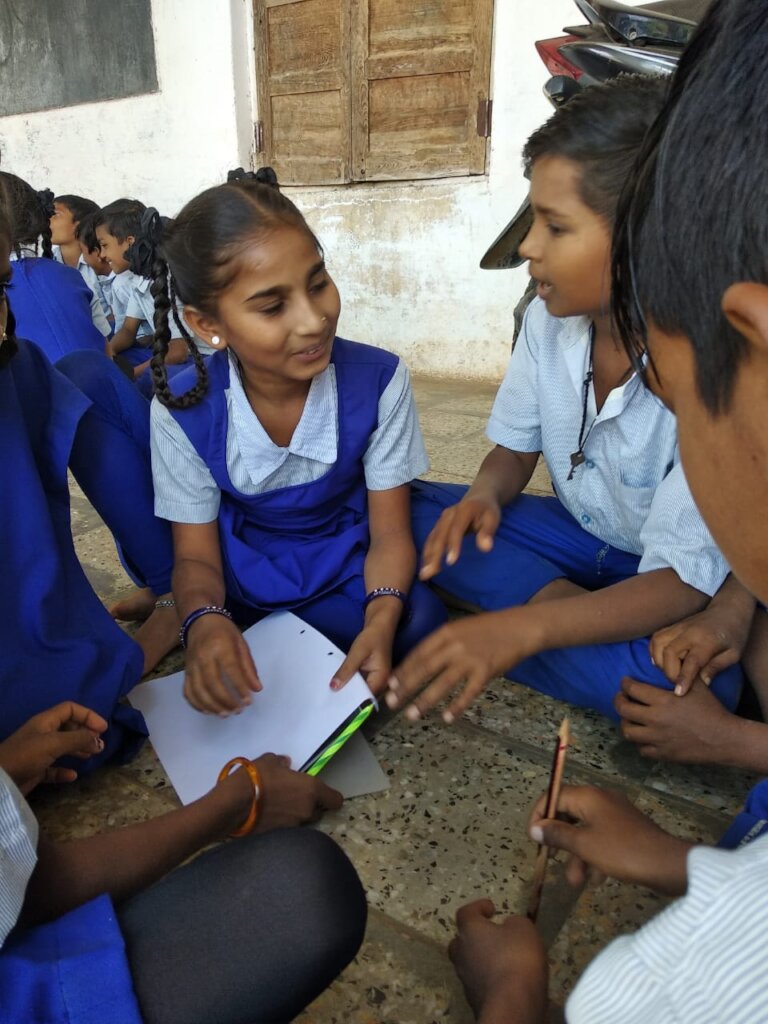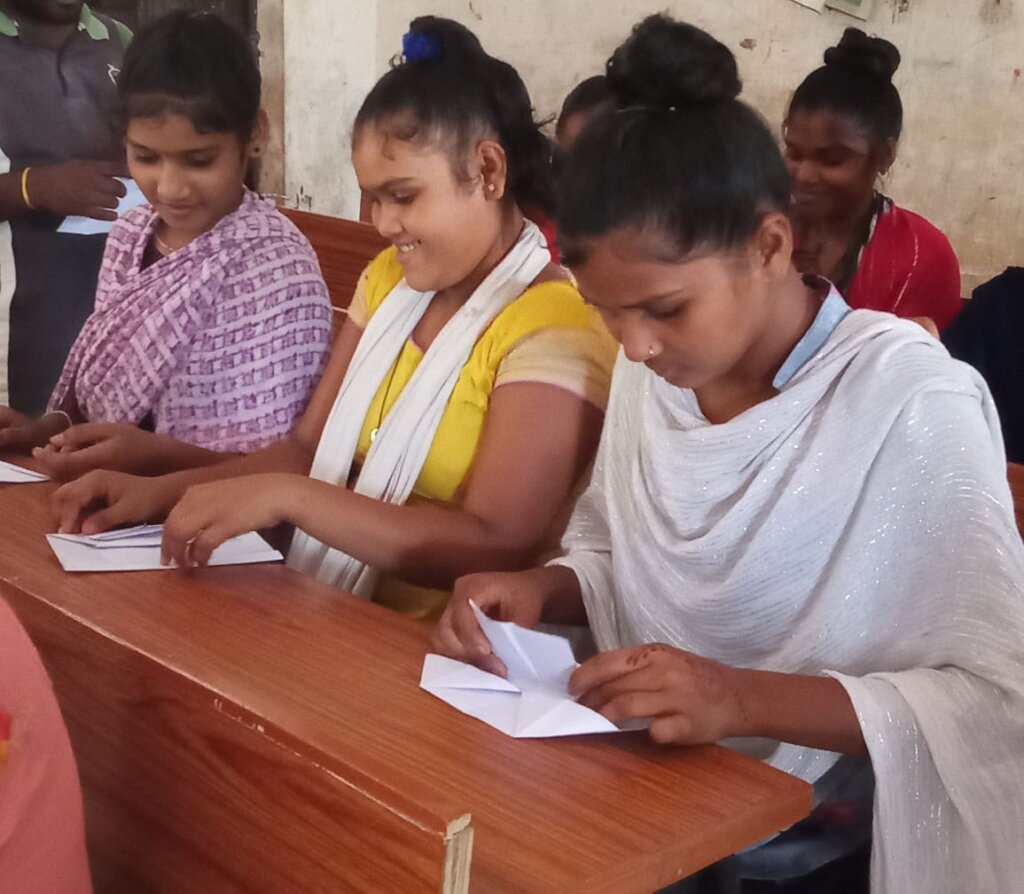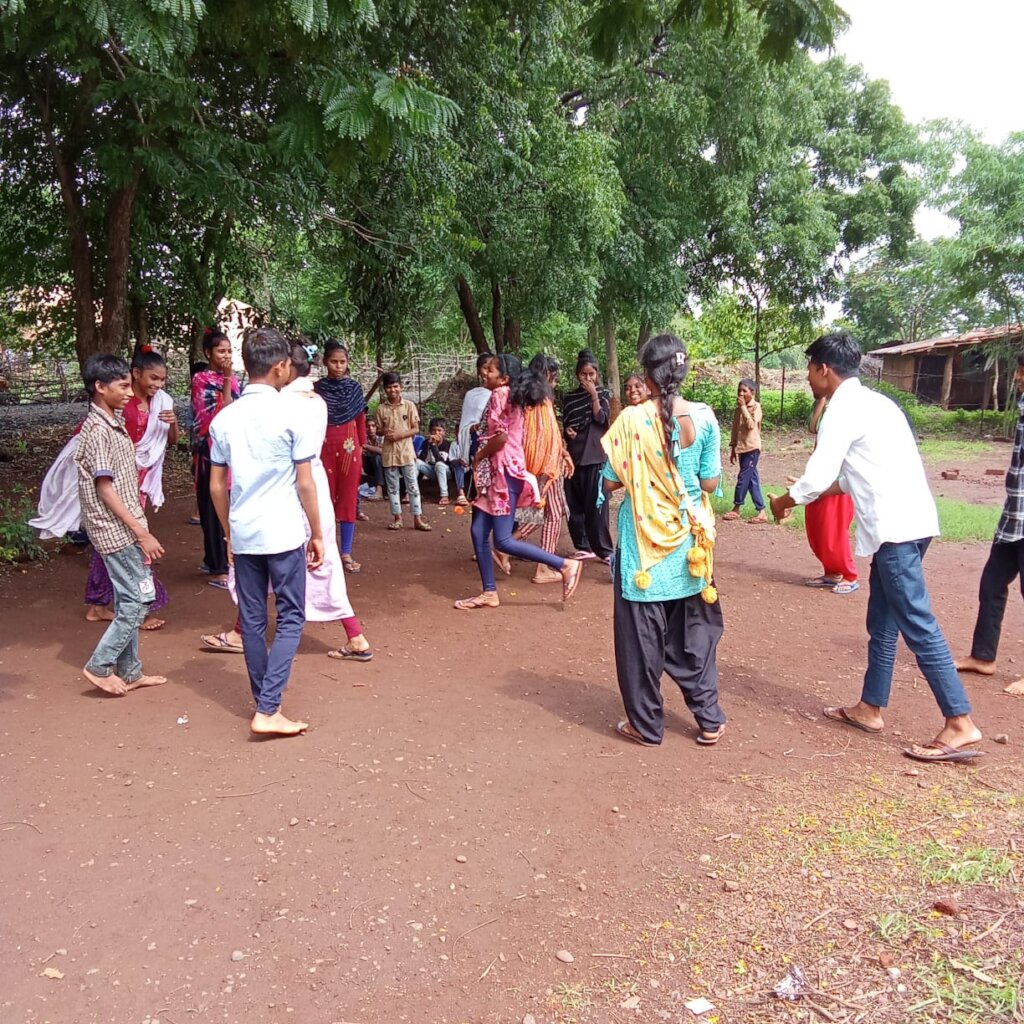By Lijimol | Project Coordinator
Let us hear some real life stories from Dediyapada block of Narmada district, Gujarat where the Aaranyak programme is actively functioning.
1. Hari (name changed) has been with our Vanshala programme for a long time. He exhibited enthusiasm and leadership qualities and was a regular attendee of our Vanshala program for three years. When he reached tenth grade, he became irregular in our sessions due to his evening tuition and extra classes. The team was only able to occasionally meet and interact with him. To our shock, after some months we found out that he attempted suicide by consuming pesticide, and he is in a critical situation. We were all startled and felt helpless. But thankfully fate was lenient this time. Hari survived and he came out of the critical situation and within months he came back healthy.
Our team visited himand interacted with him regularly at his home. After many conversations we enquired why he did it and he replied that he just felt like doing it. He knew it was a mistake, but he felt alone and was stressed about academics. He admitted that it was an impulsive action from his side.
Later days, our team ensured a safe space for him and talked with his parents about creating a safe space for him even at home. Eventually with a good support system he began to come for the sessions. He show great interest in science and aspires to become a doctor. He wants to take science for his higher studies. A good school with therequired needs is farfrom the village. But he is certain about his interests and passion to pursue. But his family wants him to stay nearby. But we supported his decision and made conversations with his family to let him choose what he wants.
This incident also prompted us to think seriously about the mental well-being of the children in tribal regions. Mental Health has indeed emerged as a topic with increased visibility these days, but sadly it still exists as an urban issue. So currently there is a skewed distribution in access to mental healthcare among urban and rural regions. The matter is worse among tribal regions, where these topics are of least importance. This led us to making plans and creating intensive activities to ensure a safe, open and judgement free space for children.
2. The Family group is one of the strategies that we adopt to create a safe bully-free environment in Aashramshalas. Aashramshala is a residential educational institute for tribal children where children take care of themselves from age 6. Being away from home, they feel isolated, alone and unheard.In a family group, there will be a mix of older and younger children. Here the older children will be taking care of the younger ones in chores, self-care, learning process etc. Eventually a bully-free respectful environment is created.Kuntiamba is one of the Aashramshalas that we have been visiting over a period of three years. The administrative has been very supportive of our activities in the region for all these years. Teachers in Kuntiamba teachers noticed that children have become more sensitive and thoughtful towards one another. A bullying free environment is thus created in these Ashramshalas where values of respect and empathy are inculcated and practiced.
3.Rajan (name changed) of 9th class in Almavadi school suffers from a learning disability. He can’t write and he barely speaks. The Aaranyak team always observed him. He doesn’t take part in or show any interest in the activities. His colleagues also commented that he doesn’t speak, write or interact with anyone. The team visited Rajan’s home. His home was in a pathetic condition, but it was found that his mother also suffers from undiagnosed mental illness. After speaking with people close to Rajan, it was found that Rajan just loves watching cricket!! The neighbor at whose home Rajan visits to watch television gave us this input.
Later when the team visits the school, Rajan always smiles and shows a positive sign for their arrival. The disabilityhas put restriction in his cognitive development, but his emotional connections and bonding are strong, and this is a motivation for us to reach more children.
On the months of March, the children at Aashramshala were engaged in activities of mental health, sports, child rights and ecology sessions. Ecology sessions were around water, water pollution and the importance of water conservation. Children also learnt tocreate things, make designs out of used papers.
In the coming days...
For the Academic year from July 2024 ,strategies are drafted and Theory of Change for the new program AamliTimli is also made. AamliTimliwould be a project where two Aashramshalas would be visited on a daily basis, thus striving to create an exploratory space for children. This year we added three more Ashramshalasto our weekly visits. These Aashramshalas are locatedat very interior locations with limited accessibility. Thus, our engagement with children becomes more relevant and important.
Project reports on GlobalGiving are posted directly to globalgiving.org by Project Leaders as they are completed, generally every 3-4 months. To protect the integrity of these documents, GlobalGiving does not alter them; therefore you may find some language or formatting issues.
If you donate to this project or have donated to this project, you can receive an email when this project posts a report. You can also subscribe for reports without donating.
Support this important cause by creating a personalized fundraising page.
Start a Fundraiser

